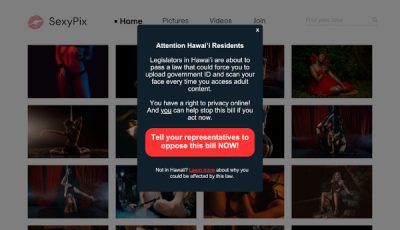FSC Files Amicus Briefs in Three FOSTA-Enabled Lawsuits
 The Free Speech Coalition announced Thursday that it has joined civil rights and sex worker rights groups in filing amicus (“friend-of-the-court”) briefs defending three online platforms against FOSTA-enabled civil litigation. In each case, civil litigants are seeking damages from online platforms — Twitter, Craigslist and Omegle — who the plaintiffs allege have profited from sex trafficking.
The Free Speech Coalition announced Thursday that it has joined civil rights and sex worker rights groups in filing amicus (“friend-of-the-court”) briefs defending three online platforms against FOSTA-enabled civil litigation. In each case, civil litigants are seeking damages from online platforms — Twitter, Craigslist and Omegle — who the plaintiffs allege have profited from sex trafficking.
“Since the passage of FOSTA in 2018, we’ve seen numerous litigants sue platforms for the actions of independent users on those platforms,” said Alison Boden, Executive Director of Free Speech Coalition. “We are concerned that the courts are not giving proper weight to the protections of First Amendment and Section 230, nor the limitations of the FOSTA exemption. We thank the ACLU for inviting us to join these briefs and are proud to stand alongside them in defense of our constitutional rights.”
FSC has joined the American Civil Liberties Union, Center for Democracy and Technology, Sex Workers Project, SWOP Los Angeles, Reframe Health and Justice, and other civil rights groups in filing the briefs in support of the defendants in three cases: J.B. v Craigslist, Doe v Twitter and M.H. v Omegle.
In the announcement, FSC said “Amicus briefs are a critical method for advocacy organizations like FSC and other interested parties to contribute to the legal analysis in pending litigation, providing insight, experience and knowledge that may not be otherwise apparent to the court. In addition to joining with other organizations on amicus briefs, FSC has filed its own amici in cases related more directly to the adult industry,in addition to successfully defending the rights of the industry at the US Supreme Court in Ashcroft v. Free Speech Coalition.”
Boden noted that FSC “has specialized knowledge of the history of sexual speech and its direct implications for free expression that other 1st Amendment advocates may not.”
“We have also taken on fights that others would not, and successfully defended the rights of our industry,” Boden added. “This is a history that these amicus briefs build on, and we look forward to growing our legal advocacy work and alliances in the coming year.”
In a blog post about J.B v. Craigslist published last year, Eric Goldman, an Associate Dean for Research and Professor of Law at Santa Clara University School of Law, noted that the complexities of FOSTA and the exception it creates to Section 230’s safe harbor provisions are “confounding judges.”
“Plaintiffs underutilitized FOSTA’s new Section 230 exclusions for the first two years after the law’s enactment, but now we are getting FOSTA rulings at a rapid clip,” Goldman wrote. “Given FOSTA’s terrible drafting, it’s not surprising that the rulings are not agreeing with each other.”
Observing that different courts have split on claims in very similar FOSTA-enabled cases, Goldman wrote that “given the collision between this ruling and the Doe v. Twitter case, and the odds that both of these cases will go to the Ninth Circuit, we will have to wait for an appellate ruling before we can more confidently predict what the next court will do.”













